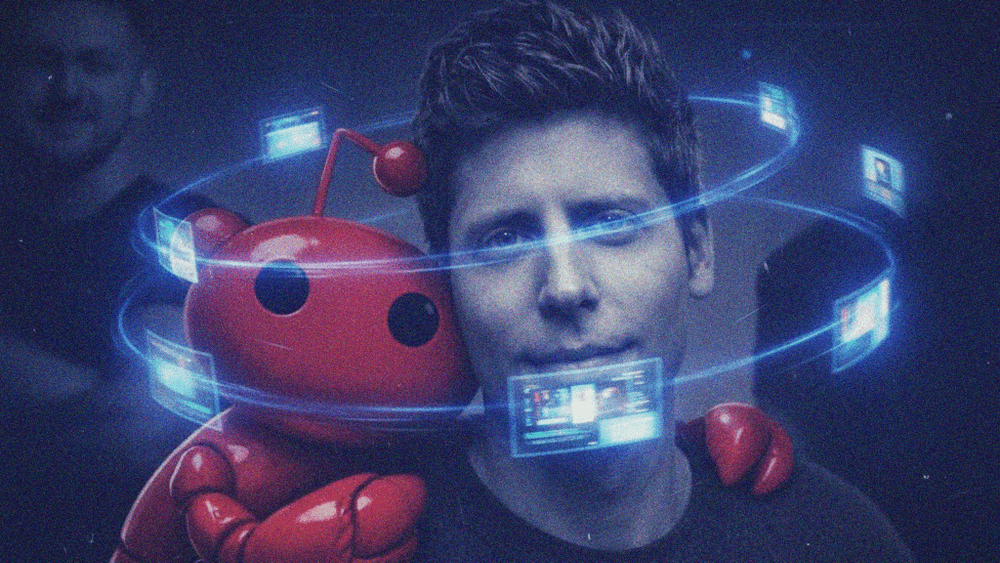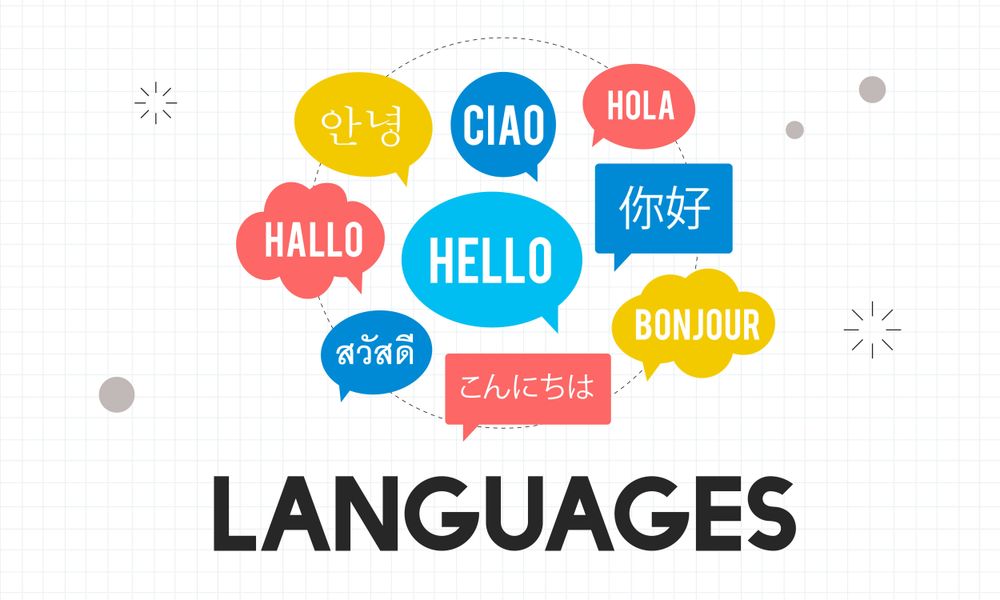
Artificial Intelligence has the ability to transform education by providing personalized learning experience to students' needs. However, the integration of AI in education has ignited a heated discussion debating whether AI is a true game-changer or just a passing trend of technology. It is critical to carefully assess the benefits and challenges of integration of AI in education.
In today’s fast-paced world of advancing technologies, artificial intelligence has become increasingly used in various industries. In the healthcare industry, AI is used in assisting medical professionals in delivering accurate diagnoses to the patients. In the finance industry, it’s used for fraud detection and data analytics.
The automotive industry utilizes AI for self-driving cars while the field of customer service is being transformed by the integration of chatbots and virtual assistants. Due to artificial intelligence’s ability to handle and analyze vast amounts of data, it is driving industries towards growth-oriented opportunities, and more efficient procedures. The impact of AI on our daily lives signals a massive shift on how we perform our jobs and interact with technology.
AI can create a positive impact in the field of education, by improving accessibility for learners who are visually and hearing impaired through the application of AI-driven visual tools and voice-to-text applications. Furthermore, AI has the potential to reduce the workload of human instructors, especially with limited resources and staff in the environment.
However, despite the anticipation, there are critical concerns and uncertainties regarding the effectiveness and the ethical implications of AI in educational settings. Let’s explore the world of artificial intelligence and uncover its endless possibilities.
What is Artificial Intelligence?
In this era of advanced technology, artificial intelligence (AI) is transforming the education industry, making it important for all involved to understand its true essence. AI deals with the use of computer systems that mimic human intelligence. It offers versatile tools that can be applied to a wide range of tasks including image enhancer and restoration, language translation and grammar checker, writing assistance, and much more.
By understanding the true essence of artificial intelligence, we can better appreciate its potential impact on the education industry.
The Promise of AI in Education

AI offers various significant positive impacts in the field of education. Below are some key benefits.
-
Personalized learning experience
Artificial intelligence is transforming the education industry by providing personalized learning experiences . Unlike traditional methods of teaching, this innovative approach goes beyond academic content and incorporates adaptive learning style, predictive problem-solving techniques, and personalized feedback. By tailoring the learning process, AI ensures that every learner can engage with the advanced technology in the most effective manner. AI promotes an environment where learning is dynamic, adaptable, and centered around the needs of the learners. AI in education is not merely a tool; it unlocks the potential for each learner to venture into on their own personalized journey towards knowledge.
-
Access to quality educational resources
By utilizing the power of artificial intelligence, educational materials can be tailored to provide to the specific needs of every learner. Resulting in a significant improvement in their understanding and recalling the subject matter. Essentially, artificial intelligence serves as a bridge that allows a diverse range of students to access quality education resources. The impact of AI in education goes beyond catering to different styles and education tools or resources; it also plays a crucial role in achieving better quality of education.
-
AI assists learners 24/7
Unlike human instructors, artificial intelligence (AI) like AI chatbot is capable of operating continuously without requiring pauses, sleep, or rest, so it can help students whenever needed. AI provides real time feedback around-the-clock making the learning experience more accessible. Moreover, AI enhances education by cutting out limits regarding accessibility, location, and affordability. In summary, AI’s availability for 24/7 helps learners get quick, individualized, and accessible educational tools that encourage learners to continuously learn and grow.
-
Diverse Language
AI is transforming the education industry by providing diverse language support and translation services to improve learning. Additionally, AI plays an important role in helping learners and instructors regardless of their native languages. Because of AI, learners have access to academic materials through an on-the-spot translation and interpretation. The utilization of AI in various languages within education is extremely important for overcoming language barriers.
-
Quick Response
The integration of AI in education has the ability to provide quick and efficient responses. It allows learners to receive instant feedback on their request, questions and prompts, and promotes an interactive learning experience. AI is beneficial to those learners who need immediate solutions or clarifications on topics. Additionally, AI offers multiple inquiries and requests simultaneously, guaranteeing that every learner obtains fast and quick prompts without any unnecessary delays.
Challenges and Concerns of AI in Education
Although artificial intelligence presents some benefits, it is essential also to address some challenges and concerns when it comes to integration of AI in education.
-
Lack of Human Interaction
In the education industry, artificial intelligence has the ability to customize the classroom virtually and tailoring the content to meet the unique needs of every learner. However, as the classroom becomes virtual, there's a significant concern in the lack of human interaction . In contrast to traditional education, where there is an interpersonal relationship between instructors and learners with AI. It only relies on virtual interactions to just type the prompts and get automatic responses. AI has the potential to disregard the traditional student-teacher interaction.
-
Data Security and Privacy Concerns
In order for AI systems to perform properly, it is sometimes necessary to input sensitive information. However, this poses a risk to data security and privacy. These systems often gather and analyze data about the learners and raise serious concerns regarding how the system stores, uses, and protects the collected data and information. It is important to protect sensitive data in order to prevent unauthorized access, identity theft, and misuse of gathered information. Additionally, it is essential to guarantee a safe and protected environment for both learners and educators to promote effective learning.
-
Loss of Individual Creativity
One of the concerns is loss of individual creativity. AI offers the possibility for customized learning experiences to meet the unique needs of each learner. The use of AI in education, including tools like ChatGPT, often relies on some existing information to prompt responses. It may not always be an original thought or creativity from the learner. However, it is crucial to determine the balance of utilizing AI and preserving the learner’s creative abilities.
-
Technology Dependence
The integration of AI into the education sector is associated with an increase of being dependent on technology. AI can provide tailored learning experiences, and provide fast and real-time responses, which can improve engagement and performance. Also, AI can assist instructors with their work. However, this dependence may also raise challenges and concerns about negligence of traditional teaching and critical thinking skills. As AI becomes increasingly integrated into the education industry, it is important to balance dependence on technology and a human-centered approach. Thus, AI should serve as an enhancement to the educational system, rather than replacing human interaction.
-
Opportunities of Academic Misconduct or Plagiarism
AI has the potential to transform the education industry by providing a technology-based learning experience. However, concerns arise in academic integrity as the technology makes it difficult to distinguish between an AI-generated text and learners' work. This may result in academic misconduct and plagiarism. As AI continues to evolve and serves as a tool, learners must ensure that this technology is used in the right way.
-
Accuracy is not guaranteed
Integrating artificial intelligence in the education industry carries huge potential for transforming the way learners acquire skills and instructors teach. However, the success of AI in education cannot be guaranteed. AI relies on gathered data and algorithms. If the data used is biased or incomplete, it may lead to insufficient integrity of conclusions drawn by AI and potentially lead to significant issues and challenges.
Case Study of AI in Education
A recent IDC study, sponsored by Microsoft, covered 509 higher education institutions in the United States. They found out that almost all of the respondents –99.4%– say AI will be beneficial for the next three years. The 15% of respondents referred to AI as a "game-changer," with 54% of higher education institutions in the United States currently exploring AI technologies. Additionally, 38% of these institutions have already integrated AI into their core business strategies.

Furthermore, higher educational institutions are not only focused on offering knowledge and skills to the learners but also on their success. These institutions aim to provide learners with the necessary AI-powered tools that are beneficial for them. According to the report, this sector anticipates significant growth in competitiveness, funding, and innovation over the next three years. It indicates that these institutions are working towards enhancing their system and staying ahead. With the rapid advancement of technology and demand for quality education, incorporating artificial intelligence in education can improve the success of all learners.

In their study, AI is set to transform the education industry in the near future without the need for a long-term data strategy. The integration of AI in learning and in the classroom is expected to be the most notable use within the next 12 to 18 months. This modernized approach focuses on personalized education at a larger scale, ensuring accessibility and equality to all learners. This also includes incorporating augmented reality or virtual reality, it will highlight the use of modernized workspaces, labs, and advanced technologies for a blended learning experience.
Conclusion
Adapting artificial intelligence (AI) in the education sector, it can reshape the way students learn. By providing a tailored learning experience, access to quality resources, and 24/7 support without delay, AI can greatly enhance learners' engagement and learning outcomes.
AI can provide learners with a vast amount of quality educational resources. With the help of AI-powered tools, learners can access interactive study materials, virtual reality simulations, and other online resources.
Additionally, AI can provide 24/7 assistance to learners anytime and anywhere, allowing them to receive instant feedback and support. AI tools like chatbots and other virtual assistants can help learners on their inquiries that provide answers and allow them to learn at their own pace.
Unfortunately, there are also several challenges and concerns of integrating AI in the education industry. One of the main concerns is the lack of human interaction. AI can provide virtual learning experience, it cannot replace the traditional learning style that comes from interacting with the instructors. Because human interaction plays an important aspect in learners' communication skills and critical thinking.
Another challenge is data security. AI relies on collecting and analyzing vast amounts of gathered data, including learners' information. AI ensures that privacy and security of this gathered data is their top priority to protect learners' rights and prevent them from misuse and unauthorized use.
Furthermore, with the dependence and use of AI in education there is potential risk of academic dishonesty and plagiarism. Learners may use AI to cheat or plagiarize someone's work and diminishing the integrity of the education.
In conclusion, while the integration of artificial intelligence (AI) in education holds great promise for the industry, it also needs to address some challenges it presents. It is crucial to have an AI with a combination of personalized learning with human interaction from instructors, protection against data misuse, and establish clear rules to prevent academic misconduct. AI has the ability to transform the education industry with the help of its powerful tools, learners can become efficient, and empower them in achieving their top capabilities and success in this world of advanced technology.





